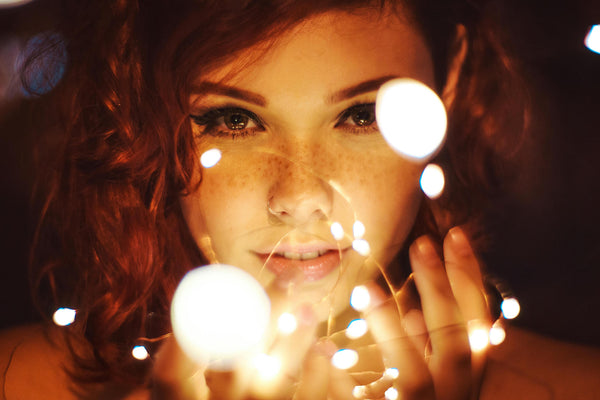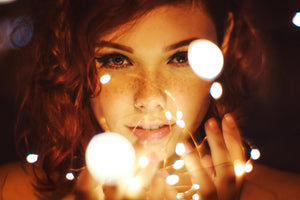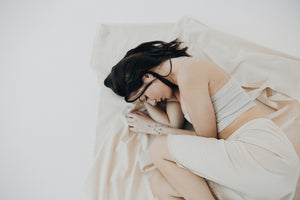What are the Different Types of Acne, What Causes It, and How You Can Get Rid of It

The most common locations are the face, chest, and back. Facial acne is the most visible type of acne and can be very embarrassing. Chest and back acne are often hidden under clothes, but can still be uncomfortable. Fortunately, there are many treatments available for acne. With patience and persistence, it is possible to achieve clear skin.
The symptoms of acne vary depending on the type. However, the most common symptoms are blackheads, whiteheads, pimples, and cysts.
Blackheads are small, dark bumps that form when the pores become clogged with oil and dead skin cells. Whiteheads are similar to blackheads, but are larger and have a white head. Pimples are small, red, inflamed blemishes that can be painful. Cysts are large, pus-filled bumps that can be very painful and lead to scarring.

The 2 Main Types of Acne
Acne blemishes can range from mild to severe. There are different types of acne, which can be categorized by how they form. The two main types of acne are inflammatory and noninflammatory acne.
Inflammatory Acne
Inflammatory acne is the type of acne that most people are familiar with and is more severe. It typically manifests as red, swollen bumps on the skin's surface, and can be quite painful.
There are several different types of inflammatory acne, including papules, pustules, nodules, and cysts. These forms of acne are caused by inflammation of the hair follicles, which can be triggered by several different factors, including hormones, bacteria, and excess sebum production. Acne vulgaris and cystic acne are common types of inflammatory acne.
Noninflammatory Acne
Noninflammatory acne develops due to a build-up of oil and dead skin cells, but without the bacteria. If these blockages become infected with bacteria, they may become inflamed.
What Causes Acne Breakouts?
Anyone who's ever had a pimple knows that they seem to pop up at the most inconvenient times. But what causes acne? While there can be many triggers, there are a few common culprits.
Hormonal changes, for example, can cause an increase in oil production, leading to clogged pores and breakouts. Diet can also be a factor; foods high in sugar and dairy have been linked to flare-ups. And, of course, stress doesn't help either. When we're feeling anxious or overwhelmed, our bodies produce more of the hormone cortisol, which can lead to inflammation and breakouts.
So next time you're reaching for that ice cream or a candy bar, remember that it might not be doing your skin any favors. The good news is that there are plenty of ways to fight acne, so don't despair if you're dealing with a few blemishes. With a little patience and the right products, you'll be on your way to clear skin in no time.

Hereditary Factors
Like many things in life, acne can be hereditary. If your parents or grandparents had severe acne, there's a chance you will too. . For example, if your parents had high levels of hormones that stimulated excess oil production, you're more likely to have the same problem. Similarly, if your family is prone to bacterial infections, you may be more likely to develop acne. Knowing this information can help you take steps to avoid or limit the effects of acne.
How to Get Rid of it
There are many different ways to get rid of acne blemishes, but some methods are more effective than others. Some common methods include over-the-counter medications, prescription medications, home remedies, and natural treatments.
There are many treatments for acne, which can be divided into two main categories: topical treatments such, as salicylic acid, and oral medications. Topical treatments are applied to the skin and include creams, gels, and lotions. Oral medications are taken by mouth and include antibiotics and hormonal agents.
Acne Treatments
Standard Over-the-Counter Options
If you've ever had a pimple, you know the drill: find the nearest over-the-counter, drug store acne treatment, and start slathering it on. But what you may not know is that these treatments can come with some pretty unpleasant side effects. For example, many acne treatments contain benzoyl peroxide, which can dry out your skin and make it more susceptible to sun damage.
Similarly, salicylic acid can cause redness, irritation, and flaking. And if you're using an over-the-counter retinol product, you may experience redness, irritation, peeling, and dryness. So what's a blemish-prone person to do? First, consider trying a gentler approach: wash your face twice a day with a mild cleanser, and use a light moisturizer. And when it comes to over-the-counter treatments, start with a small amount and increase as needed - your skin will thank you for it.
Some home remedies can speed up the healing process, such as using ice to reduce swelling, using a warm compress to open up pores, and using a gentle exfoliating scrub.
Prescription Options
If you're one of the many people who suffer from severe acne, you've probably tried a variety of over-the-counter treatments such as salicylic acid with varying degrees of success. For some, the next step is to see a dermatologist and get a prescription acne medication.
These treatments can be effective, but they also come with the risk of side effects. This can lead to irritation and discomfort, especially if the medication is used for an extended period. Other potential side effects include increased sensitivity to sunlight, burning, stinging, or tingling of the skin. In rare cases, more serious side effects can occur, such as changes in skin color, hives, blisters, anxiety, depression, and breathing difficulties. Antibiotics can cause stomach upset, diarrhea, and yeast infections.
If you're one of the many people struggling with acne, you might be surprised to learn that your birth control could be to blame. While oral contraceptives are often prescribed as a way to help regulate hormones and clear up breakouts, they can have the opposite effect on some people. It's all about finding the right balance of hormones for your body, and sometimes that can take a little trial and error. If you think your birth control is making your acne worse, talk to your doctor about other options.
If you experience any of these side effects, you should speak to your doctor. Acne treatments can be effective, but it is important to be aware of the potential risks before starting any medication. For some people, the potential side effects are worth it for the sake of clear skin. For others, they prefer to stick with more natural methods.
Lifestyle Modifications
Acne can be a real pain, both literally and figuratively. If left untreated, acne usually goes away within a few weeks to a few months. The good news is that there are things that can be done to help prevent breakouts or minimize the duration.
Firstly, it is important to keep the skin clean. This means using a gentle cleanser and avoiding scrubbing the face harshly. Secondly, it is important to avoid picking at the skin or squeezing pimples or clogged pores, as this can lead to scars. Finally, it is important to avoid touching the face, as this can transfer bacteria, oils, and dirt from the hands to the face.
By following these simple tips, you can help to keep your skin looking and feeling its best.

The Importance of Identifying Your Triggers
Many people are familiar with the occasional pimple or zit, but for some, severe acne is a constant battle. Many triggers can cause an acne flare-up, including stress, hormones, diet, and certain medications. To control acne, it is important to identify the causes and develop a plan to minimize the triggers.
For example, if stress is a trigger, taking steps to reduce stress levels through exercise, relaxation techniques, or counseling can help. If dietary changes are necessary, eliminating processed foods and increasing the intake of fresh fruits and vegetables can make a big difference.
Understanding triggers and taking action to avoid them can help control acne and achieve clear skin.
Psychological Triggers
Anyone who's ever had a pimple knows that acne is more than just a skin condition - it can also be a major source of anxiety and insecurity. But what many people don't realize is that there's a strong psychological component to severe acne. Studies have shown that stress, anxiety, and negative body image can all contribute to breakouts.
When the body is under stress, it produces hormones that can lead to an increase in sebum production. Sebum is a type of oil that helps to keep the skin moisturized. However, too much sebum can clog pores with dead skin cells and provide a breeding ground for bacteria. As a result, stress and anxiety can cause acne flare-ups. Additionally, people who are prone to anxiety and stress may be more likely to pick at their skin, which can also cause inflammation and lead to breakouts.
In fact, some research suggests that the psychological impact of acne may be even greater than the physical effects. This means that treating acne requires more than just using topical creams - it also requires addressing the underlying psychological triggers. Only by addressing both the physical and psychological causes of acne can you hope to achieve clear skin.
Why I created Acne Be Gone
I've heard many stories from patients regarding the treatments they have tried. The best way of treating acne woes is by addressing the entire acne complex and rebalancing your internal ecosystem.
This means detoxifying the liver, recalibrating oil production in the sebaceous glands, and reducing heat which causes redness/ inflammation and acne-causing bacterial imbalances. I combine eastern medicine, Ayurveda, and functional medicine. Some ingredients are fast-acting while others work at a deeper level and are slower-acting.
The result is a rapid solution, regardless of the type of acne, while also restoring balance deeper within oneself where healing happens most efficiently; not only on top surface levels like many medications do today.








